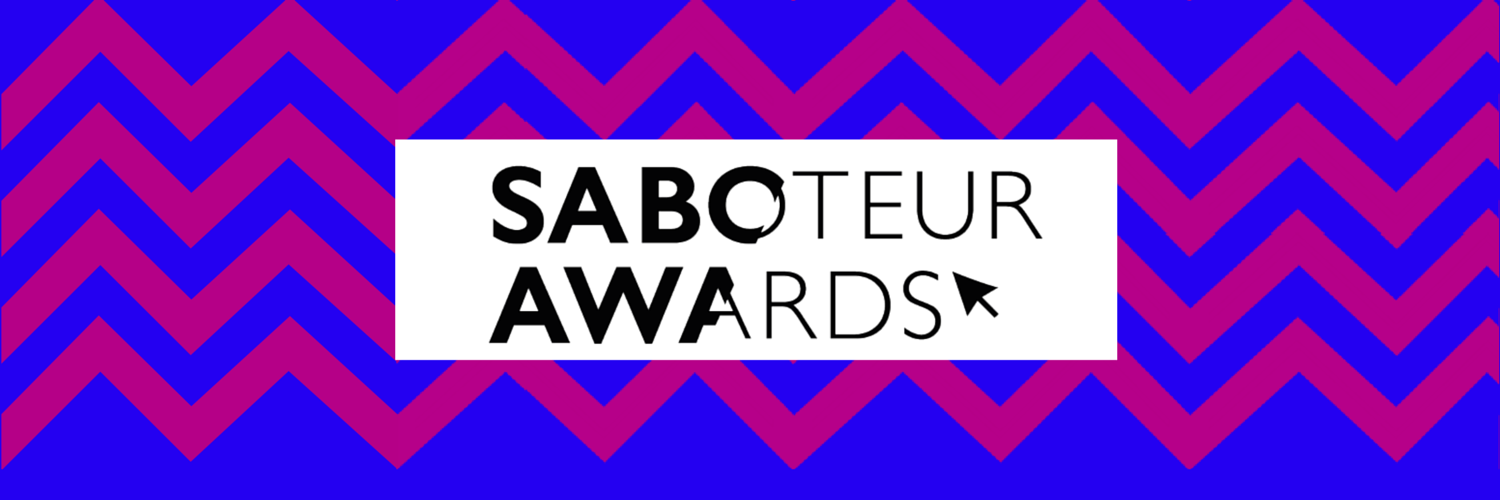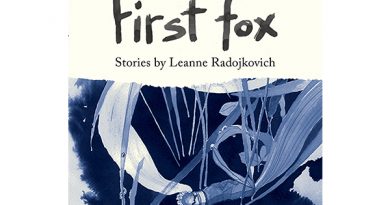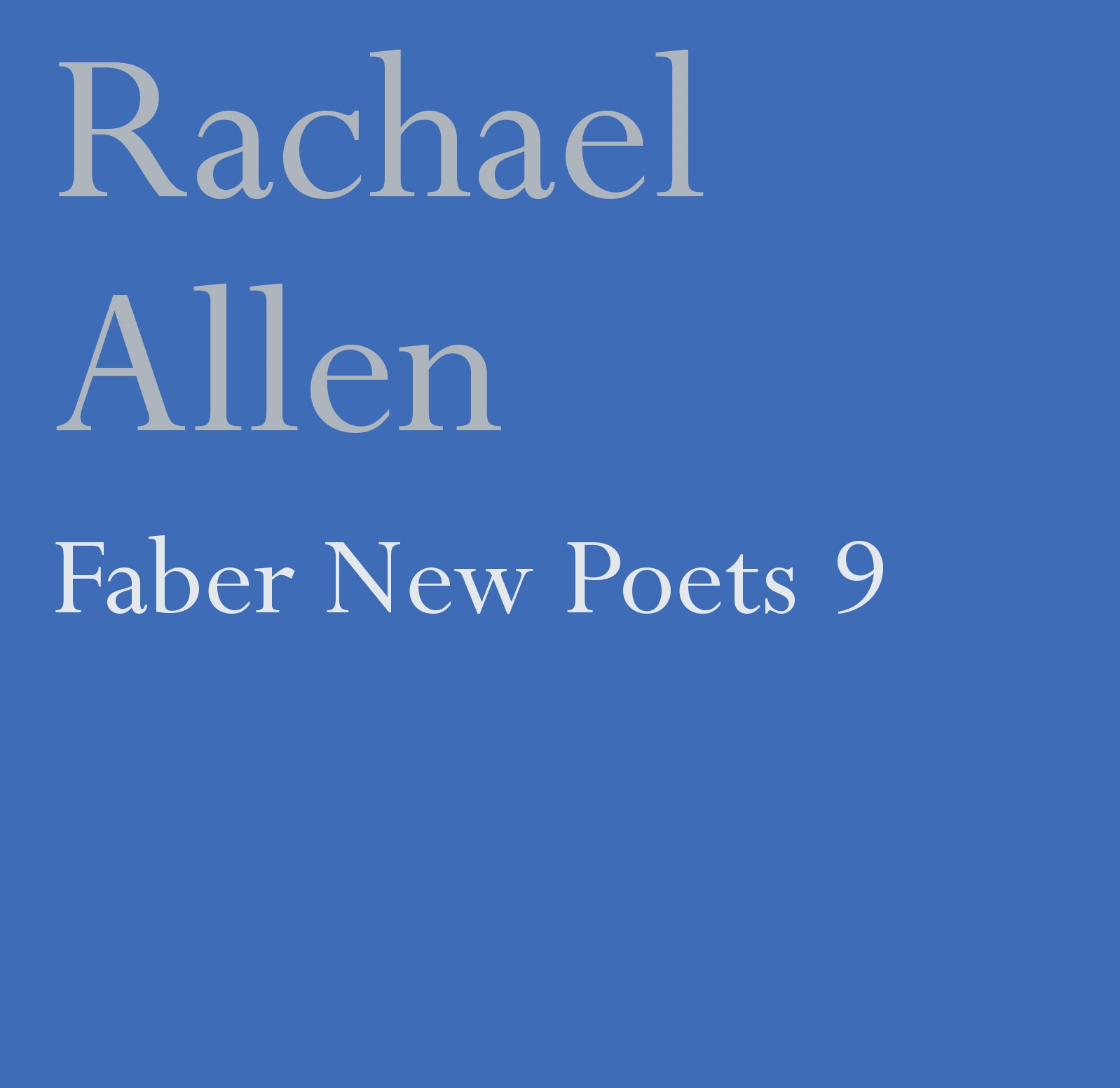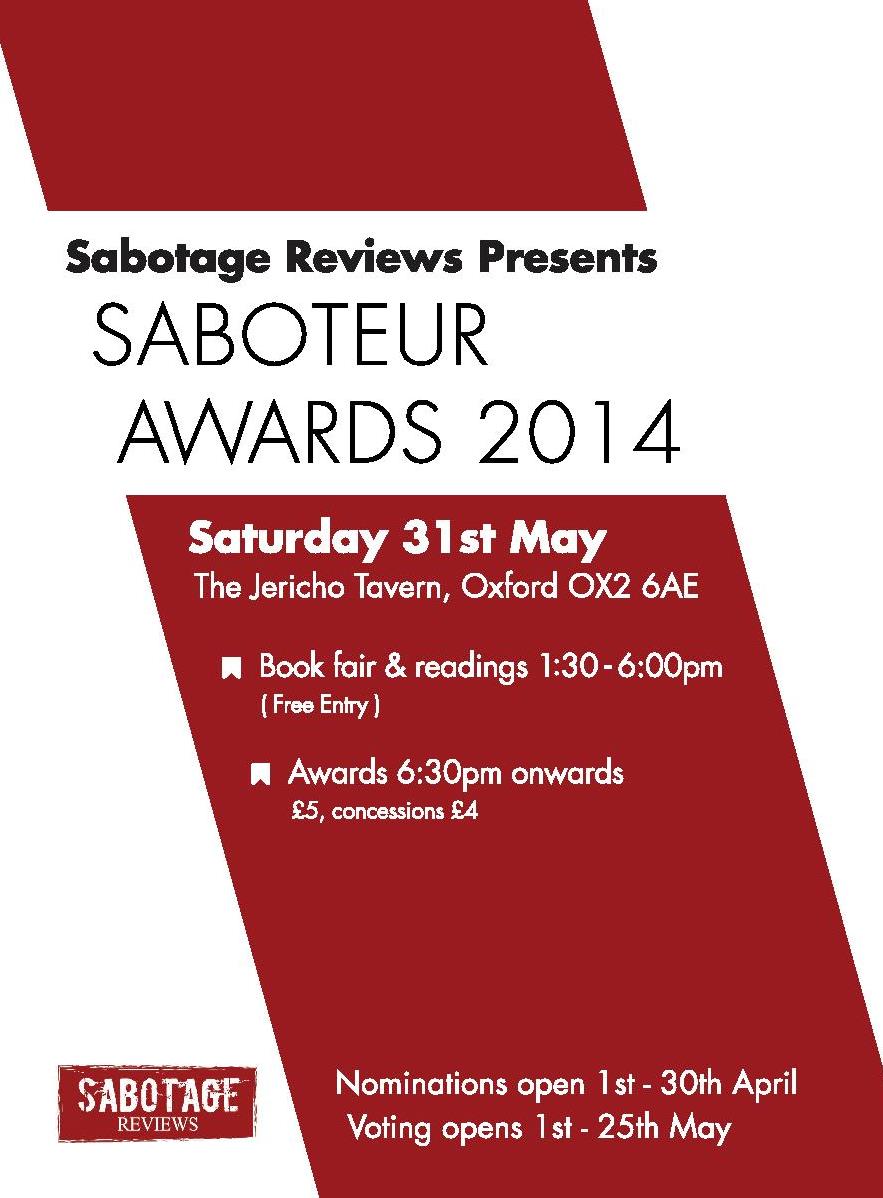Saboteur Awards 2015: Best Anthologies, Pamphlets, Publishers and Reviewers
– In which Becky Varley–Winter sums up Best Anthologies, Poetry Pamphlets, Reviewers, and Publishers –
Best Anthology
Best Anthology was a dynamic, closely-fought category, with readers especially valuing anthologies that give space to fresh voices and break boundaries. Among the runners-up, Double Bill, ed. Andy Jackson (Red Squirrel Press) was praised for accessibility and variety, blending page and performance poetry:
‘an accessible stimulus that gives a way in for the non-literary’, ‘a master class in how to curate an anthology’, ‘fresh, entertaining, […] humorous and poignant, excellent on the page and performed’, ‘cutting edge and eclectic’, ‘verve, originality’, ‘innovative and fun’, ‘just a brilliant book. Funny, poignant, lively – fabulous’, ‘excellent range of humour, nostalgia and profound comment’, ‘vibrant, compelling […] fully embracing the notion of entertainment in the widest sense.’
Ten: The New Wave, ed. Karen McCarthy Woolf (Bloodaxe), showcases new work from young ethnic minority British poets, hailed as ‘new talent with brain and heart running on full tanks’:
‘cutting edge poetry’, ‘experimental and fresh’, ‘exciting new voices that will enliven British poetry for many years to come’, ‘best thing that’s happened to poetry in a long while’, ‘a journey and movement of writers as well as great work’, ‘thrilling’, ‘essential voices in contemporary poetry in today’s multicultural Britain’, ‘deserves a very wide audience’, ‘in one stroke it reminded people that British poetry need not be dull, hidebound and monotone, and can be frantic, manic, joyous and beautiful all at once.’
The short story found a champion in Unthology 6, ed. Ashley Stokes and Robin Jones (Unthank Books), described as ‘a must read’:
‘an adventure!’, ‘power, precision and sheer readability’, ‘a real mix of styles – led me to discover Elizabeth Baines’, ‘cutting edge’, ‘original, witty, sad, fearless’, ‘combines ferocious imagination with the ability to make us see it’, ‘my favourite story in this collection was Niagara Falls by James Wall. It was a beautiful account of love and lost opportunities’, ‘there aren’t genre boundaries, or word limits, and I think there need to be more spaces like that for writers to be allowed to breathe a little more deeply, take bigger risks, […] an intense, immersive, surprising, and satisfying read as a result’, ‘the most eclectic, inclusive, lit-up and magical short fiction series in existence today. […] manages to weave a disparate range of stories into something like a narrative. It’s not just fine writing; it’s fine editing from two of the best practitioners in the country’.
In at a very close second came Furies: A Poetry Anthology of Women Warriors, ed. Eve Lacey (For Books’ Sake). An anthology of poetry by women with all profits going to Rape Crisis, it attracted strong, emotive support from readers:
‘OUTSTANDING!’ ‘‘Furies’ brings to powerful, vengeful and joyful voice the full spectrum of women for whom being assaulted is a life-changing but not life-exhausting experience. Should be read by everyone, poetically not just didactically’, ‘the world needs anthologies of women warriors’, ‘such awesomeness for female empowerment!’, ‘an important message about female suffering and liberation’, ‘such passion!’, ‘inspiring and amazing – taught me a lot!’, ‘a brave collection’, ‘showcases the best of women’s lyric– moving between the mordant, the angry and the sad with deft sleight of hand’, ‘‘every day thousands of survivors have to live with the consequences of the actions of rapists. This anthology highlights the strength of character of beautiful humans, and makes the fight to survive just that little bit easier’, ‘gives voices to the silenced women of the past, and by proxy those of now and the future. Written by and collated by volunteers and people that believe in the power of words to make a change’, ‘it contains every shade of female voice. It shouts, it whispers, it makes you smile, it makes you cry. An amazing collection!’
Just pipping it to first place came this year’s winner, The Charnel House, ed. Tom de Freston (Bridgedoor Press), a striking combination of poetry and visual art, in which 37 poets were invited to respond to De Freston’s paintings. The result made an arresting, indelible impession:
‘I could stare at it for hours’, ‘pushes you out of your box’, ‘visually compelling, intensely moving poems. […] a real stretch for publisher and editor’, ‘extraordinary, disturbing, powerful. […] I haven’t seen a format like this before’, ‘visually spectacular’, ‘pure genius’, ‘remarkable fusion of visual art and poetry and an impressive collaboration between so many artists’, ‘making poetry comment upon paintings, which then become visual poems in their own right, inviting us to unfold their secrets, which are always in excess of any single gloss’, ‘extraordinary, harrowing, thought provoking and brilliant’, ‘extraordinary vision crossing boundaries between art, poetry and theatre’, ‘writing and artwork beautifully compliment and enhance each other – no struggle for supremacy’, ‘challenging, pensive and captivating’, ‘tells a story but opens one’s senses to a new way of ‘looking’ (by which I mean reading too)’, ‘captivating, totally new and fascinating’, ‘not just poetry but decontextualised Guernica/Goyas’, ‘a work of staggering beauty, featuring some of the most talented up-and-coming writers working, along with the genius artwork’, ‘disparate yet cohesive, subtle yet devastating – incredible’, ‘visceral and beautifully disturbing’, ‘the most original anthology I’ve ever read – an immersive, challenging, moving experience’, ‘creates a new mythos for the 21st century and transcends the anthology genre’.
Best Poetry Pamphlet
This year brought an exciting, varied poetry pamphlet shortlist, from Holly Corfield Carr’s site-specific, interdisciplinary MINE, to Sarah Fletcher’s passionate Kissing Angles, to Mark Fiddes’ witty The Chelsea Flower Show Massacre, to Brett Evans’ gritty, honest The Devil’s Tattoo, to Victoria Kennefick’s vibrant and touching White Whale. Beginning with the runners-up, Holly Corfield Carr’s MINE was praised for her multilayered use of several disciplines, being a visual and textual companion to a site-specific work. Voters declared her pamphlet ‘utterly wonderful and innovative’:
‘intelligently written, with multiple layers and meanings’, ‘fucking brilliant!’, ‘transcends the boundaries of poetry with wit, humour, power and grace’, ‘a beautiful object and totally original writing, structurally courageous and very moving’, ‘it works on so many levels – visually, textually’, ‘not just words and paper, but also an event’, ‘a vivid view into a bloody past and a sensory escape into a secret, magical place’.
Mark Fiddes’ The Chelsea Flower Show Massacre was complimented particularly for his humour and vivid imagery:
‘wickedly funny, deeply thoughtful and reflective, […] exquisitively memorable’, ‘the title alone is fascinating, it conjures up all sorts of crazy images… I loved it’, ‘each line counts, […] Dramatic images’, ‘witty and thought-provoking’, ‘funny and intelligent’, ‘bright and bursting’, ‘outstanding, utterly delightful and very clever’, ‘a joy to read’.
Sarah Fletcher’s Kissing Angles was hailed as a bold and vital debut from a young writer:
‘A mature and engaging pamphlet […] fighting a game with people three times her age and still winning’, ‘sharp poems, the mark of a bright poetic future’, ‘the best collection of poetry, regardless of length, I read this year’, ‘an original voice and authentic style’, ‘gifted and bright’, ‘full of passion and emotion’, ‘poignant’, ‘just wonderful’, ‘bold and visceral and challenging’, ‘fast becoming a poetic force of nature’.
Brett Evans’ The Devil’s Tattoo achieved second place, with voters praising the clarity, humour and grit of his debut:
‘How can such clear and “simple” writing be so complex!’ ‘Brett Evans displays both vulnerability and wit.’ ‘Rich in images, often delivered with a twist.’ ‘His fun-loving lifestyle, sometimes hilarious, sometimes poignant, emerges through clear imagery and colourful language’, ‘these poems cut like rust’, ‘strength, power and originality’, ‘appealing to all manner of reader […] both local and universal’, ‘eye-opening, soul-baring magic’, ‘a vision that is denied to most of us, and his ability to convey a lot in a few words is startling’, ‘a rollicking ride from start to finish. A merciless look in the mirror that never flinches’, ‘a deeply divine read; it is what the reviewers say and more…it allows you into the world of a romantic, vulnerable, astute, poetic, jazz loving, Welsh ‘drinker’ in all its painfully, beautiful messiness. […] And the glossy, sensuous, cover art design and layout by publisher, Indigo Dreams, is simply stunning.’
However, the winner of the 2015 award is Victoria Kennefick’s White Whale. It is clear how personally moved readers were by her deep, sea-themed pamphlet, with many tender, emotionally appreciative comments in which the word ‘beautiful’ appeared more than any other:
‘you feel the pain, the love, the fear. A beautiful publication by a true poet’, ‘genuine, heartfelt and exciting’, ‘Kennefick’s poetry captures emotion in its is finely crafted lines’, ‘refreshing, exuberant, […] vivid’, ‘funny, contemporary , fresh & untrendy verse from a clear & genuine voice’, ‘refreshingly non-introspective, this work asks to be listened to and enjoyed’, ‘a rising star’, ‘a brilliantly-threaded collection’, ‘innovative, exciting, energetic and thrilling’, ‘a fierce, unapologetic yet tender début’, ‘vibrant and assured’, ‘touching, honest and brave’, ‘cohesive, moving and original’, ‘deep passion and authenticity’, ‘outstanding and inspirational’, ‘beautiful evocative imagery!’, ‘really haunting and beautiful’, ‘beautifully produced […] cohesive […] thematically strong and linguistically inventive’, ‘Victoria Kennefick’s poetry speaks so much truth. As a fellow Irish country girl and having been lucky enough to have heard her recite some of her poems, I feel everyone can relate to pieces such as “White Whale” and “Swing”. For me, they bring back the most beautiful memories of my childhood. Magnificent.’
Most Innovative Publisher
In this category, voters rewarded dedication, aesthetics, competence, care, bridging different styles and taking risks. Among the runners-up, Burning Eye Books specialise in performance poetry and spoken word, with voters writing:
‘they publish almost every performer of note in that category. High production values, absolute commitment and backbreaking hard work from Clive Birnie’, ‘they’ve created a real niche for themselves and have such energy’, ‘capturing a generation of performance poetry for the page’, ‘the quality print home for the tsunami of performance poetry’, ‘I have purchased five BE collections over a couple of years and found each vibrant in its own way’, ‘beautiful, beautiful work that has literally re-energised and ignited my passion for poetry and prose’, ‘supportive. Adventurous’, ‘selling books like hot cakes, aiming for 50-50 male/female artists, broad range of voices and diversity of authors’, ‘everything they touch turns to amazing’.
Influx Press publish poetry focussed on ‘place’, with voters writing:
‘published the amazing Marshland, Luxury of the Dispossessed and Settled Wanderers, all totally different to anything else I have ever read’, ‘experimental place-specific writing – a rare combination that should be celebrated!’, ‘Chimene Suleyman, Linda Mannheim, Gareth Rees, Darran Anderson …’ ‘started at grass roots level’, ‘a real eye for rare talent and promote it well too. Lovely design’, ‘champion left-field stuff that other publishers often ignore. Their books are also very readable and are off-beat without being tediously obscure’, ‘work entirely off their own steam, unpaid, and with a team of two. They stick to their guns in terms of what Influx stands for, and what ‘site-specific’ means. They’re bringing psycho-geography back into a more democratic context; the land is the people’s, and we map the territory. And I think that’s laudable.’
Test Centre are an indie press and record label, attracting praise for adventurous experimental work:
‘A singular roster of authors and publications, unified through an ethos of experimentation and exquisite design’, ‘they believe in books but they also know how to celebrate all the other best bits of literature’, ‘bringing to life magical words and forms’, ‘Tom Chivers’ Dark Islands is an extremely memorable and striking collection, the likes of which don’t come around very often’, ‘customer service is excellent to say nothing of their ability to fold tissue paper perfectly to wrap their publications’, ‘amazing at finding a balance between the form/medium […] and the actual content’, ‘for the hidden gems and new works they have published; for the thoughtfulness that goes into the format of their publications, setting off their content; […] their dedication to the works they are publishing and the authors’, ‘through their events they are helping sustain a lively literary scene’, ‘going where the angels of typography fear to tread’, ‘unfalteringly hard-working, passionately dedicated and brilliantly talented, whilst also being warm, approachable, modest and generous with their time’, ‘I like the beautiful understated presentation of their books. Gives them a special collectable feel’, ‘Test Centre do a good job of fetishising the book and they fetishise the right texts too.’
In a very close second place were The Emma Press, whose anthologies, beautiful design and outward-facing approach attracted particular attention:
‘A truly inspiring small press!’, ‘engaging audiences outside the poetry cul-de-sac’, ‘decisive energy, commitment and range’, ‘good vibe all round’, ‘again and again, Emma Press produces beautifully designed characterful books. But never resting, they look always to extend their range. Really pleased to see them branching out into prose pamphlets for both fiction and essays. They work with a tremendous spirit of co-operation’, ‘young, energetic, do lots of good anthologies & pamphlets, & are torchbearers for a new generation’, ‘encapsulate a contemporary range of subjects with contributors from around the world in a distinctive and beautiful format’, ‘their books are like jewels – as should books be – to be treasured’, ‘I have seen the Emma Press bring so much joy to the poets they publish. Their anthologies are refreshing, intelligent, poignant, amusing, comforting and accessible’, ‘fresh, enthusiastic, engaged, committed and fun’, ‘I love their anthologies, single-poet collections and their frequent and fair submission calls’, ‘I am addicted to The Emma Press!’, ‘fabulously gorgeous and totally accessible’, ‘energetic, inclusive, fresh, brave, astute, determined – all those things, but what makes them innovative is that they are unashamedly outward facing’, ‘ladies doing it for themselves’, ‘I like the Emma Press’s approach – buy something if you want to submit something’, ‘a lean mean while also deeply beautiful literary machine’, ‘imaginative and politically engaged’, ‘helping to address sexism in the industry’, ‘I’ve bought 3 of their anthologies this year!’ ‘Sweet anthologies, biting debuts’, ‘small publisher, big ideas, HUGE HEART’.
But the overall winner is Penned in the Margins, judged ‘most innovative’ for their dedication to combining different media and taking risks:
‘they have a wonderful list and Tom Chivers has a very good eye for the next interesting thing’, ‘inherent innovation with pretty much everything they release’, ‘It might be “Penned in the Margins” But Tom always thinks “Outside the box”’, ‘their ideas are pretty out there but they always manage to pull it off’, ‘publishing wizards who have discovered how to teleport the page to the stage and vice versa’, ‘great production values, brilliant writing’, ‘Simon Barraclough and Chris McCabe have especially broken the moulds this year – and for the commitment to ambitious theatrical poetry events’, ‘The sheer diversity of the way Penned presents/contributes to their authors and works makes them stand out as a press interested in the “whole” of the poetry experience’, ‘bringing the margins in from the outside!’, ‘beautifully produced books, open submissions policy, respectful attitude to writers, and lots of anthology opportunities’, ‘comes at poetry at a slight angle’, ‘hot combo of live lit and page lit’, ‘I have fallen in love with every book they have published’, ‘Tom Chivers continues to push at all sorts of boundaries with real intelligence’, ‘going from strength to strength, PITM shows that books and the stuff around them need not be scared of digital world, and that nimbleness and imagination will win.’
Best Reviewer
Like good translators, reviewers have the power to bring writing to new audiences through a deep, thoughtful engagement with others’ work. At its best, reviewing is an act of love, subtle and essential. Dedicated reviewers shine a light on otherwise neglected work and keep established writers on their toes. All of which is to say: thank you so much to all of our Sabotage reviewers, we couldn’t do it without you.
The following writers made the Best Reviewer shortlist, with most voters appreciating those who are unafraid, balanced, and excellent writers in their own right. Among the runners-up, Joey Connolly was described as ‘smart, funny, honest, feminist. Babe babe babe’, ‘unbiased’, ‘knows his stuff and speaks his mind’, ‘bright opinions’, ‘brilliant,’ ‘a joyous presence’, ‘dedicated to unlocking the text’. Eniko Jahab’s reviews were praised as ‘thoughtful, well-written’, ‘incisive’, ‘charming!’ ‘very interesting and well written’, ‘amazing and thoughtful’, while Charles Whalley was described as ‘‘honest and trustworthy’ ‘a stand up guy’, ‘clear thinking’.
In very respectable second place came Afric McGlinchey:
‘lots of feeling in her words’, ‘wonderful lyricist. Superb insight’, ‘a modern and eloquent prose style’, ‘insightful, honest and learned’, ‘builds her story on the smallest details, which makes you look at her subject in a different way…’ ‘writes superbly and draws the reader in’, ‘sharp and punchy’, ‘sensitive, acute, precise’, ‘always to the point, revealing (without giving the story away)’, ‘always makes me want to rush out and buy the book she’s writing about…’, ‘clever, funny, generous spirit’, ‘concise yet expansive’, ‘thoughtful, attentive […] balanced’, ‘incredible range of books covered, many of which I didn’t know about already, especially strong on international writers’, ‘honest bollocks on the table opinions!’
However, the 2015 winner is Dave Coates, with a deluge of praise:
‘fears no one and takes no prisoners’, ‘pulls no punches, but is a thorough and fair critic’, ‘contentious, incisive, outspoken, intelligent, honest’, ‘with deep integrity and making plain any personal knowledge or prejudice’, ‘unflinching, thorough, well-informed’, ‘his blog is essential reading for anyone interested in contemporary poetry. He cuts through the bullshit’, ‘the most honest and perceptive reviewer there is at the moment. Anywhere’, ‘illuminating and entertaining, and because he’ll be reviewing for the LRB one day and you can say – ah, we found him first’, ‘Wordsworth described a poet as ‘a man speaking to men’; as a reviewer, Dave Coates always strikes me as a person speaking to people. […] one of the very few young reviewers willing to admit that most collections fall somewhere short of perfection’, ‘always bringing new things to my attention’, ‘bravely says what he thinks and he has no hidden agenda, […] without prejudice towards any particular style’, ‘always opens up the poetry under discussion, even the most abstruse. He’s unafraid to slay sacred cows too, which in the poetry world is both rare and great’, ‘When people dismiss all poetry reviewers as pretentious gits, Dave Coates is how we show they’re wrong’, ‘piercingly intelligent and not gratuitous in the way perhaps some broadsheet reviewers write scathing reviews as a bit of an exercise in chest-puffing. David seems to do it to interrogate what’s there on our bookshelves […] championing those he feels are making a significant contribution as much as he takes down those he believes aren’t working hard enough’, ‘no one else takes the literary establishment to task like he does… he’s much needed in the poetry community!’ … ‘He is usually right’.





